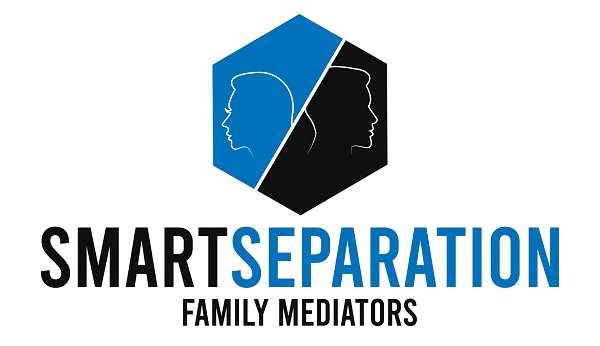Toronto Family Mediator in Divorce
Divorce can be emotionally and financially draining, but many couples in Toronto are discovering a more cooperative and cost-effective path: family mediation. A Toronto family mediator plays a unique role in helping separating spouses resolve their disputes without going to court. If you’re looking to minimize conflict, save on legal fees, and stay focused on your family’s future, mediation may be the right solution.
Neutral Facilitator vs. Legal Advocate
A key distinction between a Toronto family mediator and a divorce lawyer is their role in the process. A mediator acts as a neutral third party—they don’t take sides, offer legal advice, or represent either spouse. Instead, they facilitate constructive communication between both parties and guide them toward reaching mutually agreeable solutions.
Unlike a lawyer, who is bound to advocate solely for their client’s interests, a mediator supports balanced discussions, encourages understanding, and promotes compromise. This impartial approach often leads to faster resolutions and reduces the adversarial tension commonly associated with divorce litigation.
Focus on Collaboration, Not Litigation
The traditional court route can be combative and time-consuming. Couples often find themselves entrenched in legal battles that escalate emotional strain and delay closure. In contrast, family mediation in Toronto encourages a collaborative mindset—one that prioritizes dialogue, problem-solving, and respect.
Common Divorce Issues Handled in Mediation
A Toronto family mediator can help couples resolve nearly all of the major issues that arise during a separation. These commonly include:
- Parenting Time and Decision-Making Responsibility
Mediators help parents create detailed parenting plans that address custody, visitation, holidays, schooling, and communication. - Child and Spousal Support
Mediation allows couples to discuss support obligations openly and fairly. While the mediator doesn’t provide legal advice, they can help you explore reasonable arrangements in line with Ontario’s support guidelines. - Division of Property and Assets
From the matrimonial home to pensions and shared debts, mediators assist in facilitating clear and equitable asset division. They help couples understand the value of disclosure and fairness under Ontario’s Family Law Act. - Ongoing Communication and Dispute Resolution
Many mediators also assist couples in building communication frameworks that help avoid future disputes—such as how to handle schedule changes, future relocations, or unexpected expenses.
Comparing Costs: Mediation vs. Hiring Divorce Lawyers in Toronto
Divorce Can Be Expensive—Mediation Is Often More Affordable
Divorce in Toronto can quickly become costly—especially when disputes escalate into lengthy court battles. Between filing fees, court appearances, and hourly legal rates, the price of hiring a divorce lawyer can overwhelm many separating couples. That’s why more people are turning to a Toronto family mediator as a practical, cost-effective alternative.
Average Costs of Mediation in Toronto
The cost of working with a Toronto family mediator is typically more predictable and affordable than litigation. While exact prices vary based on complexity and the number of sessions required, here’s a general breakdown:
- Hourly Mediation Fees: Most family mediators in Toronto charge between $150 to $350 per hour, often split between both parties.
- Flat-Fee Packages: Some mediators offer flat-rate packages for specific services, such as parenting plans or full separation agreements, ranging from $1,500 to $3,500 in total.
- Subsidized Mediation Options: Through Ontario’s government-supported family mediation services, eligible couples can access low-cost or even free mediation for parenting and support issues.
Compared to litigation, mediation typically resolves disputes within a few sessions, resulting in thousands of dollars in savings.
Average Legal Fees for Contested Divorce Through Lawyers
Hiring a divorce lawyer for a contested case can significantly increase the cost of separation. According to data from legal directories and Ontario family law firms:
- Hourly Lawyer Rates in Toronto: Range from $300 to $600 per hour depending on the lawyer’s experience and firm.
- Total Cost of Contested Divorce: A contested divorce in Toronto involving child custody, property division, or spousal support can cost $10,000 to $25,000 per person, or more, depending on complexity and court time.
- Uncontested Divorce With a Lawyer: Even when spouses agree on most issues, legal fees for drafting and filing the necessary documents can still range from $1,500 to $4,000 per party.
How Mediation Reduces Time in Court and Hourly Legal Billing
One of the biggest advantages of working with a Toronto family mediator is the ability to stay out of court. Because mediation promotes direct communication and problem-solving, couples can often resolve key issues without litigation.
Here’s how mediation keeps costs down:
- Fewer billable hours: Unlike lawyers who charge for every email, phone call, or court appearance, mediators streamline the process with focused sessions.
- Faster resolution: Most couples reach agreement in 2 to 6 sessions, avoiding prolonged legal disputes.
- Reduced need for court filings: When an agreement is reached through mediation, couples can finalize their separation or divorce with minimal court involvement.
- Lower emotional cost: Less conflict and stress mean fewer delays, cancellations, and additional legal consultations.
By choosing mediation first, Toronto couples can focus their resources on rebuilding rather than fighting—while still consulting a lawyer for independent legal advice when it’s time to formalize their agreement.
Emotional Benefits of Mediation Over Litigation
Reducing Conflict and Protecting Mental Health During Divorce
Divorce is not only a legal process—it’s an emotional journey. For many couples in Toronto, the mental toll of separation is just as challenging as the financial or legal aspects. Choosing a Toronto family mediator over traditional litigation can offer significant emotional benefits, helping individuals manage stress, maintain dignity, and protect their long-term mental health. Unlike adversarial court proceedings, mediation is built on cooperation, not conflict.
How Mediation Encourages Respectful Communication
At the heart of family mediation is open and respectful dialogue. A Toronto family mediator acts as a neutral facilitator who helps both parties communicate effectively—even when tensions are high. The goal isn’t to “win” or assign blame, but to find common ground and develop solutions that both individuals can live with.
Better Outcomes for Co-Parenting and Child Wellbeing
Children are often the silent sufferers in high-conflict divorces. Mediation prioritizes the best interests of the child and encourages parents to work together rather than fight over parenting rights.
When parents collaborate through mediation, they’re more likely to:
- Develop mutually agreed parenting plans
- Reduce conflict during transitions and shared parenting time
- Maintain consistent routines and reduce disruptions in the child’s life
- Create a positive example of cooperation during tough times
Toronto family mediators are trained to keep the focus on the child, helping parents address parenting time, communication strategies, and conflict resolution plans.
Reduced Stress and Anxiety Compared to Adversarial Court Battles
Court proceedings are inherently adversarial, public, and unpredictable. They often involve delays, escalating legal costs, and emotional power struggles that can leave both parties feeling defeated. In contrast, mediation is a private, controlled process that focuses on resolution and forward movement.
Couples who work with a Toronto family mediator often report:
- Lower levels of anxiety and emotional burnout
- A greater sense of control over outcomes
- Improved confidence in their ability to manage future challenges
- Relief from the uncertainty and hostility of court battles
Additionally, mediation sessions are typically scheduled at mutually agreeable times, in a neutral and less formal setting—reducing logistical stress and emotional intensity.
When You Still Need a Divorce Lawyer (Even During Mediation)
Mediation Isn’t a Legal Replacement—It’s a Process
While many Toronto couples choose mediation as a more peaceful and cost-effective alternative to court, it’s important to understand what mediation is—and what it isn’t. A Toronto family mediator helps spouses communicate and negotiate, but they are not a legal substitute for a divorce lawyer.
Mediation is a process designed to foster agreement, not to offer legal representation or advice. Even if both parties are cooperative and reach consensus through mediation, legal guidance remains essential to ensure the final agreement is enforceable, fair, and in line with Ontario family law.
Why Independent Legal Advice Is Still Recommended
Independent legal advice (ILA) is critical when it comes to reviewing and finalizing any separation agreement that comes out of mediation. A Toronto family mediator remains neutral throughout the process—they cannot provide legal counsel to either party. That’s why each spouse should consult their own lawyer before signing anything.
Key reasons to seek ILA include:
- Understanding your rights and obligations under the Family Law Act
- Identifying potential risks in your agreement (e.g., unequal property division or unclear support terms)
- Ensuring informed consent, so the agreement can’t be challenged later on the grounds of coercion or lack of understanding
- Making the agreement legally binding, especially when converting it into a court order
Courts in Ontario may set aside a separation agreement if one or both parties did not receive proper legal advice, even if the terms were negotiated in good faith.
When to Involve a Lawyer Before or After Mediation
While some people wait until after mediation to contact a lawyer, involving one before or during the process can also be helpful—especially in more complex situations. Here’s how timing matters:
- Before Mediation:
- To understand your legal position before negotiations begin
- To prepare a list of reasonable goals and boundaries
- To review your financial disclosure obligations
- After Mediation:
- To review and explain the drafted separation agreement
- To advise on enforceability and long-term implications
- To formally file the agreement with the Ontario court (if desired)
You don’t need to retain a lawyer for full representation to benefit from their input. Many Toronto family lawyers offer limited-scope services for reviewing agreements or offering advice during mediation.
How a Toronto Family Mediator and Lawyer Can Work Together
When done right, family mediation and legal counsel complement each other. A Toronto family mediator helps the parties reach agreement through respectful, interest-based negotiation. The lawyer ensures that the final outcome is legally sound and protects each client’s rights.
Here’s how the collaboration works:
- The mediator facilitates joint sessions to resolve issues like parenting time, support, and property
- Once a draft agreement is prepared, each party takes it to their own lawyer for review
- If legal advice leads to concerns or proposed changes, the parties can return to mediation to make adjustments
- The final agreement is signed only after both sides have received legal advice and provided informed consent
Realistic Expectations: Is Mediation Right for Every Couple?
- Intro: Mediation works best when both parties are willing to participate
- When mediation may not be appropriate (e.g., abuse, power imbalance)
- Importance of initial screening and consultation
- How a Toronto family mediator assesses suitability
Mediation Works Best When Both Parties Are Willing to Participate
Mediation is a valuable alternative to litigation, offering separating couples in Toronto a more collaborative, affordable, and less stressful way to resolve disputes. However, it’s not a one-size-fits-all solution. A Toronto family mediator can guide couples through the process effectively—but only when both parties are willing to participate in good faith.
Mediation is built on open communication and mutual respect. If both individuals are ready to listen, negotiate, and compromise, the chances of reaching a successful agreement increase dramatically. But when one or both parties are unwilling, dishonest, or controlling, mediation may not be the right path.
When Mediation May Not Be Appropriate
While many couples can benefit from mediation, there are circumstances where it may be unsafe or unproductive. A Toronto family mediator is trained to recognize these red flags and will not proceed if mediation could cause harm or injustice. Common examples include:
- Domestic violence or abuse: If there is a history of physical, emotional, or psychological abuse, mediation may place one party at risk or make them feel unsafe to speak honestly.
- Significant power imbalances: One party may dominate the discussion or intimidate the other, undermining the fairness of the process.
- Lack of financial disclosure: If a party refuses to share complete financial information, the mediator cannot facilitate an informed agreement.
- Unwillingness to compromise: If one party refuses to negotiate or participate meaningfully, mediation is unlikely to succeed.
In these cases, court proceedings, lawyer-led negotiation, or arbitration may offer better protection and structure.
Importance of Initial Screening and Consultation
Before mediation begins, an initial screening and consultation is conducted by the mediator to assess whether the process is suitable for the couple. This is a critical first step—not just a formality.
During the screening, the mediator meets with each party separately to evaluate:
- The emotional and psychological safety of both parties
- Their ability to communicate respectfully
- Any history of coercion, abuse, or fear
- Willingness to disclose financial and parenting information
- Readiness to participate in the process voluntarily
This assessment helps ensure that mediation will be fair, balanced, and productive for both sides. In Ontario, accredited family mediators must follow professional screening guidelines set by organizations such as the Ontario Association for Family Mediation (OAFM).
How a Toronto Family Mediator Assesses Suitability
A qualified Toronto family mediator is trained to evaluate whether mediation is an appropriate dispute resolution tool in your specific situation. They take into account:
- Communication patterns between the spouses
- Emotional readiness to engage in negotiations
- Complexity of legal and financial issues
- Presence of children and how parenting decisions will be made
- The balance of power and whether each party feels heard and respected
If the mediator determines that mediation isn’t suitable, they will advise the couple on alternative options and may refer them to legal or counselling services better equipped to support their needs. In some cases, mediation may be postponed until both parties are better prepared emotionally or legally.
How to Get Started with Divorce Mediation in Toronto
Steps to Begin the Process with a Toronto Family Mediator
If you and your spouse are separating and want to avoid the stress, cost, and delays of court, working with a Toronto family mediator can be an excellent first step. Mediation helps couples resolve important issues like parenting arrangements, child and spousal support, and division of property through respectful negotiation. But how do you actually get started? Here’s a clear, step-by-step overview of what the mediation process looks like in Toronto.
Finding a Qualified and Accredited Mediator
The first step is to choose a qualified family mediator who is accredited and experienced in Ontario family law. In Toronto, look for professionals who are members of reputable organizations such as:
- The Ontario Association for Family Mediation (OAFM)
- The ADR Institute of Ontario
- The Family Dispute Resolution Institute of Ontario (FDRIO)
Accredited mediators are trained to handle complex family issues, follow ethical guidelines, and perform proper safety screening. Be sure to check for credentials such as AccFM (Accredited Family Mediator) or CertFM (Certified Family Mediator).
When choosing a mediator, consider their:
- Experience with cases similar to yours (e.g., high-conflict, parenting, property division)
- Mediation style (facilitative vs. evaluative)
- Availability and fee structure (flat-rate or hourly)
- Willingness to work with your lawyer or other professionals if needed
Preparing Your Documents and Goals
Before your first mediation session, it’s helpful to gather the key documents and information you’ll need to make informed decisions. This includes:
- Financial disclosure: tax returns, pay stubs, bank statements, property deeds, pension information, debts, and expenses
- Parenting information: school schedules, extracurricular activities, health records, and any prior custody arrangements
- Separation priorities: your goals for parenting time, support, asset division, and ongoing communication
Having this documentation ready will help the Toronto family mediator guide a more efficient and productive discussion. It’s also a good idea to reflect on what outcomes are most important to you and where you’re open to compromise.
Booking Your Intake Consultation and Next Steps
Once you’ve selected your mediator, the next step is to schedule an intake consultation. In most cases, the mediator will meet with each spouse individually at first to assess:
- Willingness to mediate
- Emotional readiness
- Presence of any safety concerns or power imbalances
- Key issues and goals for the process
This intake session is a required part of mediation in Ontario and helps ensure the process will be safe and constructive. After screening, the mediator will schedule joint sessions (usually 1.5 to 2 hours each) where you’ll work through each issue together. Most couples complete mediation in 2 to 6 sessions, depending on the complexity of the case.
Some mediators also provide a written Memorandum of Understanding (MOU) or help draft the Separation Agreement, which you can then take to your lawyer for independent legal advice.
As an experienced family and divorce mediator in Toronto, I often write blogs to provide insights, tips, and resources on family mediation and divorce in Ontario. Follow my blog to stay informed and empowered during challenging times.



